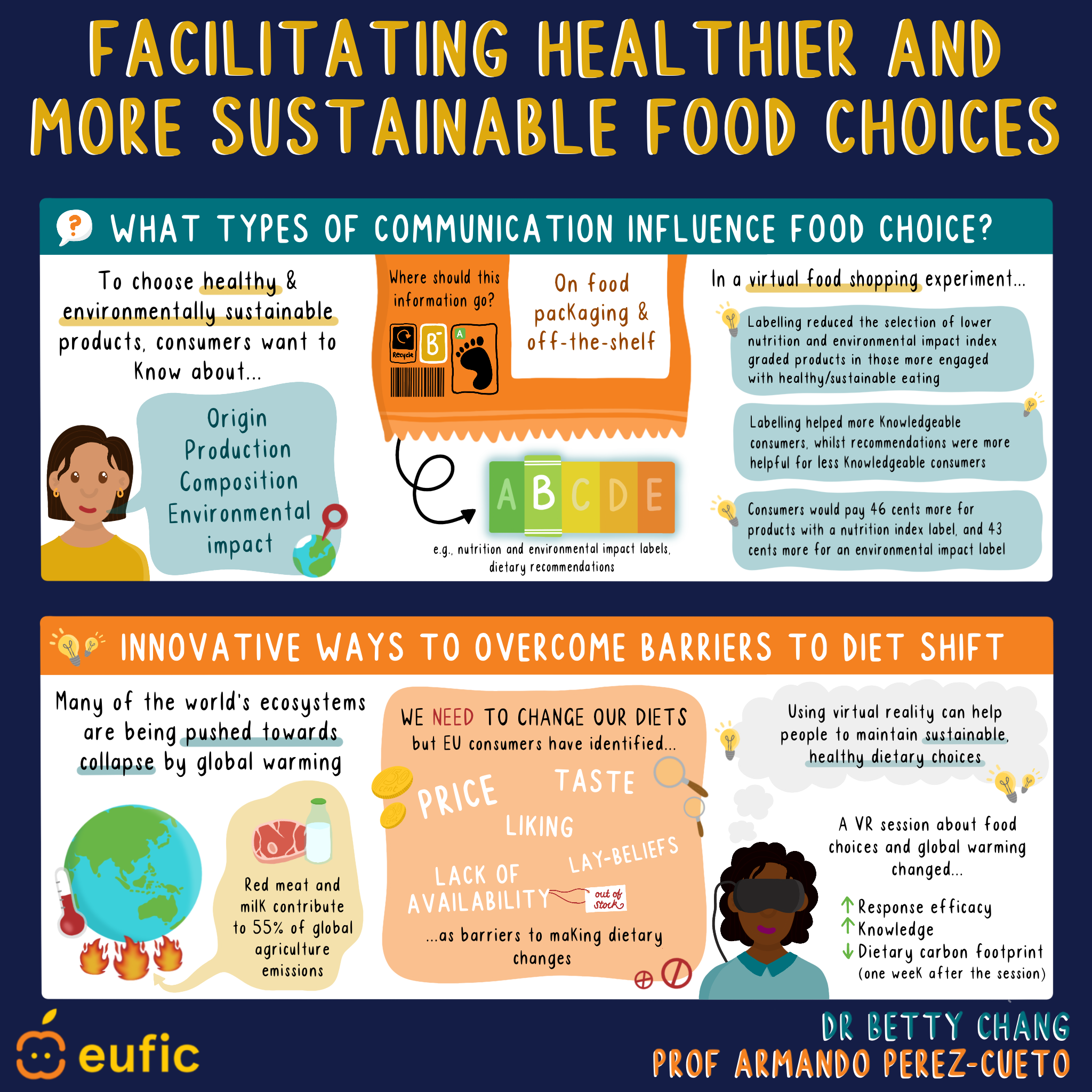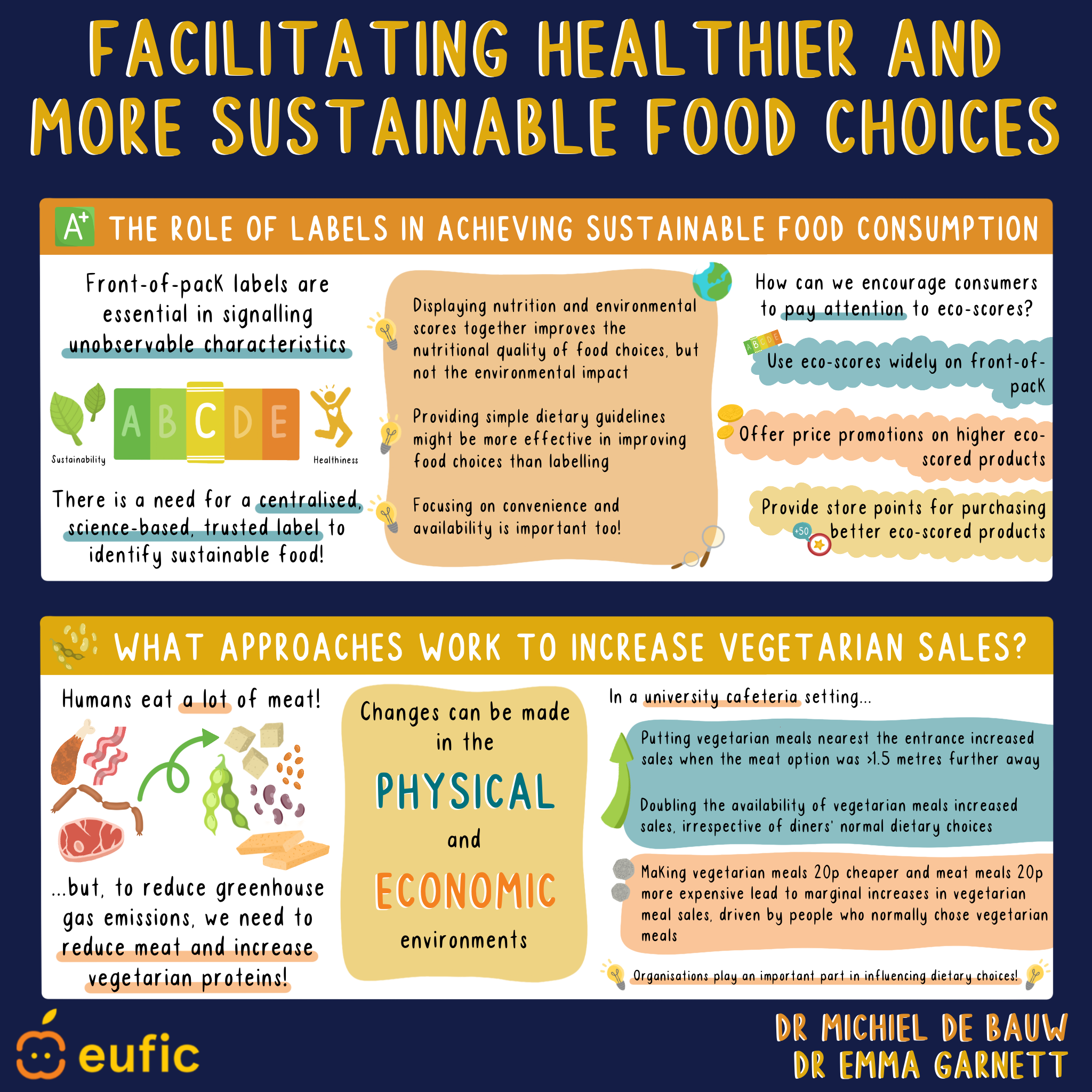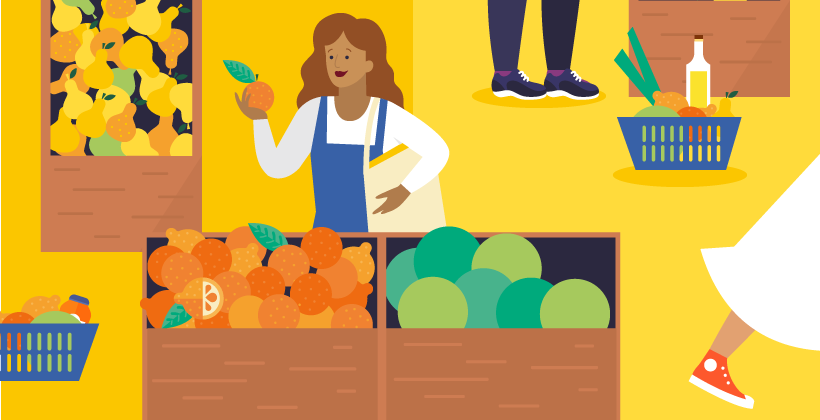EUFIC symposium on behaviour change: How can we help consumers to make healthier and more sustainable food choices?
Last Updated : 09 November 2022Helping people to improve the healthiness and environmental sustainability of their diets is a global challenge that requires a system’s perspective. Therefore, during EUFIC’s online symposium on the 3rd of November 2022, experts focused on complementary approaches towards behaviour change. They presented recent research on preferences and barriers of consumers in making the change towards healthier and more sustainable diets, and how food labels, dietary recommendations, nudges, and digital tools can support the shift.
Recording of the symposium
Watch the recording of the symposium “Facilitating healthier and more sustainable food choices: Complementary approaches to behaviour change”:
You can find the answers to all the unanswered questions submitted during the event here.
Presentations

How to communicate to consumers about healthy and sustainable diets
Dr Betty Chang, Research Area Lead at EUFIC, kicked off the discussion by presenting how to best communicate about healthy and sustainable food to improve consumers’ food choices. She showcased two European studies that were conducted to understand consumer’s needs and to examine how to effectively communicate about healthy and sustainable diets to consumers. Food labelling tended to help those who already know how to eat sustainably and healthily. By contrast, a healthy and sustainable eating recommendation tended to help those who do not know how to eat healthily.
How to overcome barriers related to plant-based foods
Prof. Armando Perez-Cueto, professor in Food, Nutrition and Culinary Sciences at Umeå University talked about Europeans' preferences and innovative ways to overcome barriers related to plant-based foods. He highlighted that changing to healthier and more sustainable diets remains a societal challenge. Although many barriers towards a more plant-based diet have been reported, consumers in Europe are experiencing them to lesser degrees. He explained that after the lockdown periods, people interact more and more through IT, making virtual reality an increasingly promising avenue to promote healthier and sustainable plant-based choices. References to the papers:
- https://doi.org/10.1016/S0140-6736(22)01540-9
- https://doi.org/10.3390/su12198228
- https://doi.org/10.1016/j.gfs.2018.08.007
- https://doi.org/10.1038/s41586-022-04629-w
- https://doi.org/10.1126/science.aaq0216
- https://doi.org/10.1016/j.ijgfs.2022.100587
- https://doi.org/10.1038/s41598-022-18241-5

Food labels and digital tools in a supermarket context
Dr Michiel De Bauw from Colruyt Group & KU Leuven discussed the role of labels and digital tools in persuading people towards healthy and sustainable food consumption in a supermarket context. Front-of-pack (FOP) labels are indispensable in revealing unobservable food characteristics. However, obtaining more healthy, sustainable food consumption patterns requires complementary measures to display those FOP labels. Based on empirical evidence from several experiments, Michiel elaborated on this potential as part of a broader marketing mix.
Increasing plant-based foods consumption: Results from college cafeterias studies
Dr Emma Garnett from Oxford University presented approaches to increase vegetarian sales and reduce meat consumption. Few studies have long-term data on which strategies could effectively lower meat consumption. During her PhD Emma ran long-term observational and experimental studies in five University of Cambridge college cafeterias to test different approaches to increase sales of vegetarian meals. Data from 1142 mealtimes and 213,627 meal selections produced some expected and unexpected results. Emma discussed these findings and the University of Cambridge's Sustainable Food Policy during the symposium.
